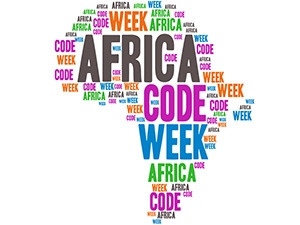
The Cape Town leg of the inaugural Africa Code Week - a coding effort across 17 African countries - will begin on Thursday at the Cape Town Science Centre (CTSC), and run until 10 October.
Aiming to teach 1 500 children to code during the upcoming October school holidays, the CTSC will be joined by specialist volunteers from SAP in hosting a variety of coding workshops tailored to a range of age groups.
These include free Scratch coding workshops for eight to 12-year-olds and a Whatsapp-cloning workshop for youths aged 18-24.
Free online courses offered during Code Week include Teens Get Coding, aimed at 12-17-year-olds, and a Teaching Programming to Young Learners course for educators.
In addition to the CTSC, a host of other organisations in Cape Town, Johannesburg and Durban will be hosting coding activities from 1-10 October, which can be found using Africa Code Week's live map.
"I don't think that every child needs to aspire to be a programmer, but every young person equipped with the ability to understand and write code is able to understand the innovations that define their world," says Emma Dicks, founder and director of Code for Cape Town.
In the near future, "those of us who can speak code will be able to define what our devices can do, [and] those of us who cannot speak code will be reliant on what others tell [our] devices to do," Dicks explains.
"In a day, the average person unknowingly interacts with technology that works thanks to software and code dozens of times," says Dr Carolina "Odman-Govender, chief scientist at Thumbzup Innovations.
"The beauty of programming is that is allows you to contribute to almost any field you are passionate about," adds Dicks.
The increasing demand for coding skills in economies worldwide is "not just a question of more code and new technologies, but increasingly about better and more intelligent technologies," notes "Odman-Govender.
Share